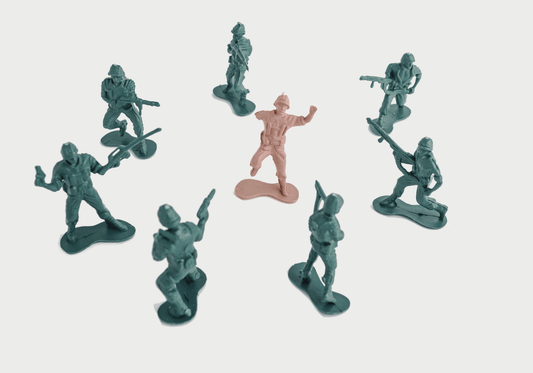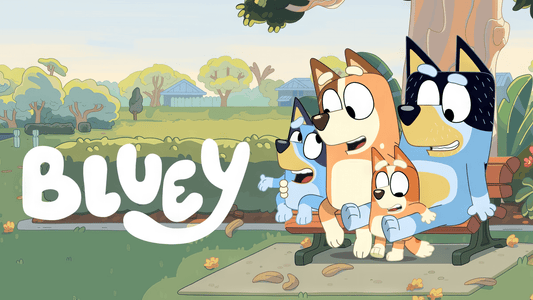Strengthen Your Connection to Your Child Through Play
Connection and play are at the heart of human relationships, especially in parenting. For neurodivergent moms raising neuro-spicy kids, these two elements are not just tools—they are lifelines. In a world that often feels overwhelming or out of sync, fostering connection through play can build trust, strengthen bonds, and create joyful moments that sustain both parent and child.
Why Connection Matters
Connection is more than just spending time together—it’s about feeling seen, heard, and valued. Neurodivergent children, like all children, thrive when they feel understood and supported. However, their unique ways of communicating, processing emotions, or navigating the world can sometimes make connection challenging.
Building meaningful relationships starts with understanding. When parents embrace their child’s unique neurodivergent traits—whether it’s intense focus on a favorite topic, sensory sensitivities, or a need for routine—they send a powerful message: “I see you, I accept you, and I love you for who you are.”
The Role of Play in Connection
Play is a universal language, and for neurodivergent children, it can be a safe and natural way to express themselves, process emotions, and build skills. Play offers a low-pressure, high-reward way to connect with your child on their terms, especially when traditional methods of communication feel tricky.
Types of Play That Resonate
Every child is different, but here are some types of play that may resonate with neurodivergent kids:
-
Sensory Play
Activities like playing with kinetic sand, slime, water, or sensory bins can help neurodivergent kids regulate their emotions while providing opportunities for connection. Engaging in sensory play alongside your child shows that you’re sharing in their joy and soothing their needs. -
Role Play and Pretend Play
Neurodivergent kids often love creating worlds of their own through imaginative play. Whether it’s pretending to be superheroes, reenacting scenes from their favorite shows, or inventing new characters, this type of play allows kids to explore emotions and practice social skills in a low-stakes environment. -
Movement-Based Play
Many neurodivergent children have an innate need for physical activity. Activities like jumping on a trampoline, dancing, yoga, or playing tag can help them burn off energy, regulate sensory input, and feel connected to you through shared movement. -
Structured Games
While some kids love free play, others thrive on structure and rules. Games with clear instructions, like board games, card games, or puzzles, can be a fantastic way to connect with kids who prefer predictable activities. Just be ready to modify the rules as needed to match their strengths and interests! -
Creative Play
Activities like drawing, painting, building with Legos, or crafting can help neurodivergent children express themselves in nonverbal ways. Joining in on their creative pursuits can foster connection while celebrating their unique talents.
Practical Tips for Connection Through Play
-
Follow Their Lead
Let your child guide the play. If they’re passionate about dinosaurs, superheroes, or trains, dive into that world with them. The goal is to meet them where they are and show genuine interest in what excites them. -
Adjust Your Expectations
Connection doesn’t have to mean hours of uninterrupted time. Even five minutes of fully engaged play can make a world of difference. Put away distractions, be present, and let your child know they have your undivided attention. -
Incorporate Humor
Laughter is one of the quickest ways to build a bond. Neurodivergent kids often have quirky, delightful senses of humor—lean into this! Share silly jokes, create funny voices, or turn everyday activities into playful adventures. -
Use Play as a Tool for Emotional Regulation
Play can help neurodivergent kids process big emotions. If your child is feeling anxious or overstimulated, a calming activity like coloring or sensory play might help them reset. -
Embrace Trial and Error
Not every play attempt will be a success, and that’s okay. Keep trying different activities until you find what clicks for your child.
The Power of Play for Moms
Play isn’t just beneficial for kids—it can also be transformative for parents. Neurodivergent moms, who may struggle with their own sensory sensitivities or executive functioning, can use play as a way to recharge and connect with their kids without the pressure of perfection.
Play allows moms to:
- Be present in the moment.
- See the world through their child’s eyes.
- Foster joy and creativity, even on hard days.
Connection and play are the glue that holds relationships together, especially in families navigating the challenges of neurodivergence. By prioritizing these elements, moms can create a strong foundation of trust, love, and understanding that will carry their children—and themselves—through life’s ups and downs.
Sources:
Featured Articles
Oh wait! There's more!
Not Sure Where to Go Next?
Articles on Motherhood & Life
If you're a slightly weird, socially-awkward, mentally-exhausted woman with ADHD, then you've found your place. You can pull up a chair and set-up camp right next to ours.
We plan to publish articles on many topics relating to our experiences with mother- and womanhood, ADHD, parenting, herbal remedies, meditation, yoga, and staying in tune with your purpose. It may be slowly, but hopefully weekly, between mom-life and full-time jobs; so thank you in advance for your patience.
So often we move in isolation, much like bears do. But bears come together, and as a parenting village, occasionally we do too. We hope you like it here and decide to stay for a bit.
Shop Our Collections
Our sense of humor is not for everyone, but our graphic tees are worth checking out if you like to look and feel awesome. We use super-soft tees with tagless branding - perfect for those of us with texture-sensitivities.
Stoner Glossary
New to the world of our girlfriend, Mary Jane? Check out our glossary of terms to help you navigate the industry around this happy herb.
Policies & Terms
Please refer to the following linked documentation for our website and shop policies:
Resources
Our special section of recommended resources, Notion templates, freebies, and e-books.
Check out areas about Cannabis, Parenting & Neurodiversity, or Notion







